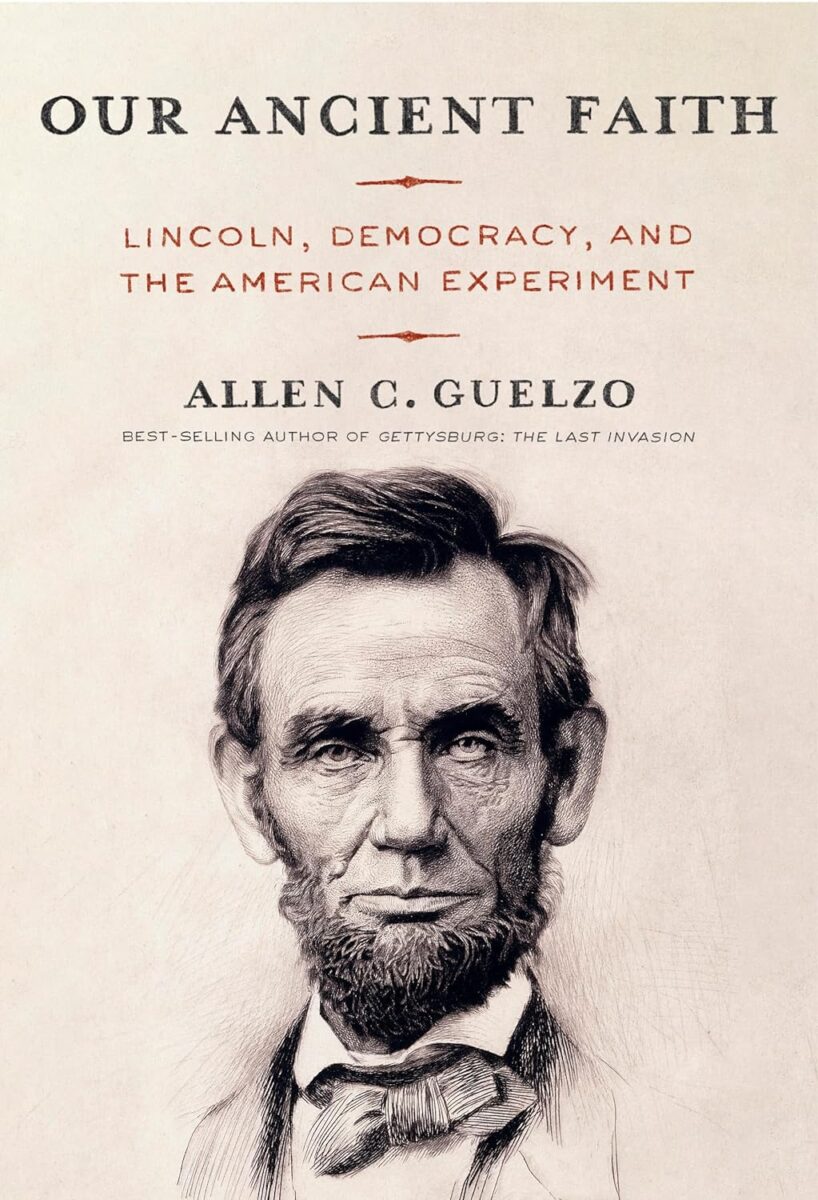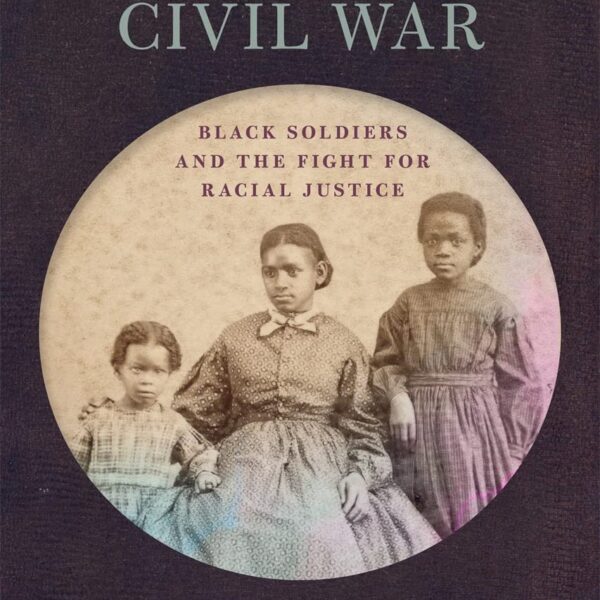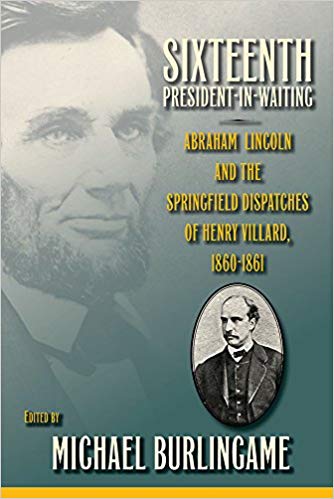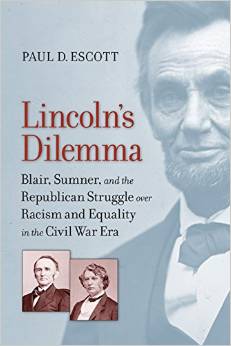Abraham Lincoln was a practical man who spent much of his life immersed in the often-grubby negotiations and compromises inherent to a life in the law and politics. This has sometimes led people to believe he was only about pragmatism and the exercise of power, with no coherent philosophy or moral framework. But in recent years, historians have increasingly come to appreciate that Lincoln was in fact an intellectually sophisticated, serious man of ideas. Allen C. Guelzo’s Our Ancient Faith is an excellent and welcome addition to this literature.
Guelzo’s fundamental concern, as the book’s title indicates, is the nature and function of American democracy, with its philosophical centering on the value, difficulties and sometimes inherent contradictions endemic to rule by the people. In addition to the age-old arguments regarding how best to answer to the people without creating a tyranny of the majority, Guelzo identifies a key issue that resonates in the present day: democracies and their relationship to effective government power. “There now stand two definitions of the problems of American democracy,” Guelzo writes: “one which complains that liberal democracy is entirely too weak to survive against the onslaught of political authoritarianism, and one which concludes that it is entirely too strong, and has become the ally of political authoritarianism” (17).
Lincoln has much to say on this issue, given that he presided over what was to that point the largest expansion of federal power in American history. His administration built a massive national army (including the first draft in U.S. history); authorized multiple suspensions of the writ of habeas corpus and imposition of martial law; supported a vastly expanded federal voice in the nation’s economic life; and, of course, freed four million slaves by presidential fiat. In so doing, he was frequently criticized as a ruthless authoritarian, running roughshod over America’s cherished democratic values.
In assessing Lincoln’s record, Guelzo takes the long view, rooting Lincoln’s ideas about democracy in his prewar experiences as a lawyer and Illinois state politician. He argues that Lincoln’s career in the courtroom and statehouse helped him develop a finely-tuned sense of the delicate balance necessary between adhering to the consent of the governed and obeying the dictates of a higher “natural law” that sometimes ran counter to the wishes of the democratic majority. As president, he vastly increased his own power and that of his government, but he remained firmly grounded in the essential value of rule by the people. “Lincoln inhabited America’s democratic mores, but he negotiated them at the same time,” Guelzo writes. “He regarded them as both knowable and fundamental, and yet he regarded their self-proclaimed constituencies as unstable and occasionally prone to think more highly of themselves than they ought” (92-93).
Guelzo clearly admires Lincoln and sees him as both an able wartime leader and consummately skilled politician, but Our Ancient Faith is no hagiography. Guelzo points out that there were excesses and blind spots both in Lincoln’s prewar approach to the problems posed by slavery and American democracy, and in his various wartime policies involving emancipation, civil liberties, and the expansion of government power. But he also quite correctly argues that Lincoln’s leadership in negotiating these treacherous byways was both ethical and effective, all the while avoiding the often-damaging emotionalism endemic to rule by the people. According to Lincoln, Guelzo writes, “what mitigated the baleful tendency of passion in democracy was law….so long as Americans allowed themselves to be ruled by reason, they would choose to be ruled by law, and all would eventually be well” (35).
Guelzo displays an impressive command of not only the vast literature of Lincoln studies, but also the theoretical and philosophical writings on democracy, everything from Socrates to Emmanuel Kant. His ability to weave a narrative of Lincoln, his times, and broader political philosophy in such a relatively slim volume is astonishing; in the hands of a lesser scholar, this might easily have devolved into either an unmanageable thousand-page behemoth or a superficial and unsatisfyingly shallow skipping of rocks across a pond.
Instead, Our Ancient Faith is at once thought-provoking, learned, and eminently readable. Guelzo adroitly identifies the key tensions and problems involved in guiding a democracy during a civil war. He convincingly argues that Lincoln’s response to those tensions was both effective and overall grounded in democratic values.
Brian Dirck is a Professor of History at Anderson University and the author or editor of many books on Abraham Lincoln.





